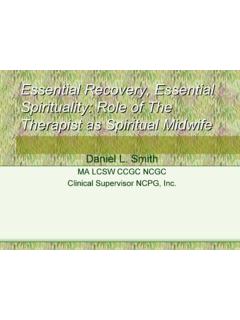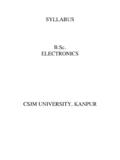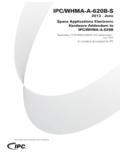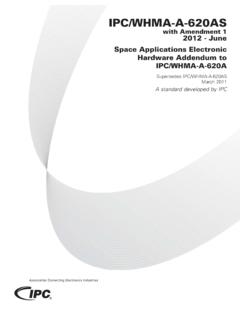Transcription of Republic of South Africa - SAFLII
1 Republic of South AfricaIN THE HIGH COURT OF South Africa (WESTERN CAPE HIGH COURT, CAPE TOWN)Case No: 6566/06 Before: The Hon Mr Justice Binns-WardIn the matter between:PETER JOHN TURTONA pplicantandLORRAINE JANET TURTON 1st RespondentSHERIFF OF THE HIGH COURT, STRAND2nd RespondentJUDGMENT DELIVERED: 2 FEBRUARY 2012 BINNS-WARD, J:1]The marriage between the applicant and the first respondent was dissolved in terms of an order made by this court on 20 August 2008. The order incorporated the provisions of a consent paper entered into between the parties. In terms of clause 3 of the consent paper the applicant was bound to pay R12 000 per month to the respondent in respect of personal maintenance from 1 September 2008.
2 The consent paper provided for the annual escalation of this maintenance obligation to accommodate the eroding effect of monetary inflation. It also provided that in the event of the first respondent being paid the sum of at least R3,5 million out of the proceeds of a fixed property registered in the name of the applicant, which was to be put into the market, the applicant s aforementioned maintenance obligation would thereupon fall away. These provisions constituted a maintenance order , as defined in s 1 of the Maintenance Act 99 of ]The applicant fell into arrears with the payment of the maintenance. He then applied to the maintenance court for a reduction in the amount of his monthly maintenance obligation.
3 The proceedings in the maintenance court culminated in an order being taken by agreement between the parties on 23 April 2010. According to its tenor, that order directed the applicant to pay personal maintenance to the first respondent with effect from 1 May 2010 in the amount of R8 000 per month, with an additional amount of R2000 per month to be paid in respect of the months of May and June ]The arrears which had built up in respect of the applicant s obligation in terms of the high court order remained unpaid. The first respondent obtained the issuance by the registrar of the court of a writ of execution in respect of the unpaid arrears. The execution of the writ resulted in the attachment of some debentures owned by the applicant.
4 The effect of the writ was subsequently suspended pending the determination of the current Section 1(1) provides: In this Act, unless the context indicates otherwise - 'maintenance order ' means any order for the payment, including the periodical payment, of sums of money towards the maintenance of any person issued by any court in the Republic , and includes, except for the purposes of section 31, any sentence suspended on condition that the convicted person make payments of sums of money towards the maintenance of any other person; .24]The order made by the maintenance court was made in terms of s 16(1)(b) of the Maintenance Act, which provides:(b)After consideration of the evidence adduced at the enquiry, the maintenance court may in the case where a maintenance order is in force i)make a maintenance order contemplated in paragraph (a)(i) in substitution of such maintenance order ; orii)discharge such maintenance order ; orc).
5 Section 16(1)(b) falls to be read with s 22 of the Act, which provides:Whenever a maintenance court a)makes an order under section 16(1)(b) in substitution of a maintenance order ; or b)discharges a maintenance order under section 16(1)(b),the maintenance order shall cease to be of force and effect, and the maintenance officer shall forthwith give notice of the decision to the registrar or clerk of the court in the Republic where the maintenance order was issued or where the sentence concerned was imposed, as the case may be, who shall deal with the relevant records in the prescribed ]5]In these proceedings the applicant seeks an order setting aside the writ of execution. The grounds upon which he contends for this relief are that the relevant provisions of the high court order ceased to be of force or effect upon the making of the substituting order of the maintenance court, and that the terms of the maintenance court order in any event reflected an agreement of 2 The registrar of this court became obliged, upon receipt of notice of the substituting order , to act in terms of regulation 13 of the Regulations Relating to Maintenance (GNR 1361, dated 15 November 1999, published in GG 20627).
6 That entailed filing a copy of the substituting order with the original record applicable to the case in this court and recording the particulars of the new order on the order which is being reached between himself and the first respondent in respect of any unfulfilled maintenance obligations under the high court ]6]In support of the first of the aforementioned grounds the applicant relied on the effect of s 16(1)(b) read with s 22 of the Maintenance Act, as well as the interpretation by the Appellate Division, in Purnell v Purnell 1993 (2) SA 662 (A), of the essentially identical equivalent provisions of the 1963 Maintenance Act3. 7]7]In Purnell, a maintenance order had been made in the high court when the parties had been divorced.
7 Sometime later, the maintenance regime instituted in terms of the high court order was substituted by an order made in the maintenance court. Thereafter one of the parties applied for a variation of the maintenance regime. That application was brought in the high court by way of an application for a variation of the originally made high court order . Conformably with the language of the Maintenance Act, the Appellate Division held that the high court order had ceased to exist,4 having been substituted by the maintenance court order , and that therefore, being non-existent, it was not amenable to variation by the high ]8]The judgment in Purnell did not deal at all with the question that presents in the current case. The question in this case is whether an order made by the maintenance court in substitution for a pre-existing order ipso facto extinguishes the maintenance receiver s right to enforce payment of periodic 3 Sections 5(4)(b) and 6 of the Maintenance Act 23 of 1963.
8 Act 23 of 1963 was repealed in terms of s 45 of the 1998 Maintenance As Kriegler AJA stated the order of Court at notice of motion was a dead letter .4payments that have accrued under the pre-existing order prior to its substitution by a new order made in terms of s 16(1)(b) of the Maintenance ]9]By stating that when a maintenance court makes an order in substitution for an existing order the latter shall cease to be of force and effect , s 22 of the Maintenance Act does not denote that the existing order shall be deemed never to have existed. On the contrary, the language bears the plain meaning that the existing order shall cease to be of force or effect from the moment it is substituted, in other words ex nunc.
9 The substitution effected by the maintenance court order occurs when the order is made, and according to its tenor. Thus, unless, and only to the extent that the substituting order is expressed to have retrospective effect, it operates prospectively and does not derogate from the fact of the existence of the prior order , nor from any of the rights of the beneficiary of the pre-existing order which had already fully accrued. In my view, the position where a substituting order is made without expressly retrospective effect is analogous to that which ordinarily obtains when an executory contract is cancelled: The contract ceases to be of force or effect from the moment of its termination, but rights which had accrued to the contracting parties and were due and enforceable by them before the contract was ended are not extinguished with the contract.
10 The accrued rights may still be enforced despite the fact that the contract has subsequently become a dead letter see Crest Enterprises (Pty) Ltd v Rycklof Beleggings (Edms) Bpk 1972 (2) SA 863 (A) at 870G - ]10]The firmly entrenched approach of our courts is to presume that if the 5legislature intended by any statutory provision to encroach on vested or existing rights it would do so plainly, if not in express words, at least by clear implication and beyond reasonable doubt .5 I find no language in the Maintenance Act which would justify its construction so as to clearly imply an intention that a substitution order made in terms of s 16 of the Act would ipso facto, and irrespective of its terms, expunge a maintenance beneficiary s rights in respect of the enforcement of payment of arrear maintenance under the preceding order if such rights had vested and been enforceable before the making of the substitution order .


















